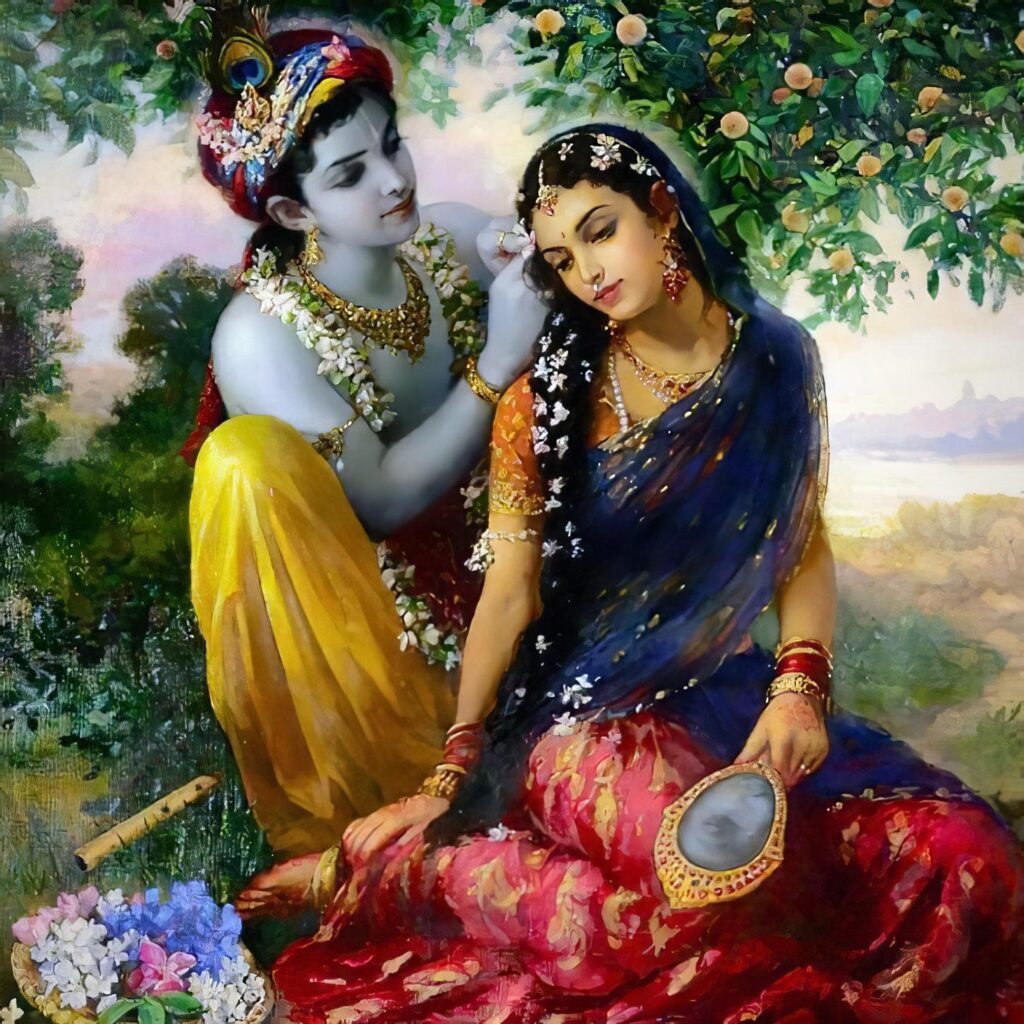One difficulty we often have in spiritual life, which causes problems both to ourselves and others, is to take just one side of a spiritual subject and try to apply it in a way that suits our misconceptions, instead of using it as a transformation tool. In this way, we change the philosophy to suit us, instead of changing ourselves to match the higher ideals of Krsna Consciousness.
One area where this is especially common is in family life. The main difficulty with men/woman relationships in this world is that relationships are often seen as a space to exercise our dominating tendencies. People, especially men, have a tendency to see their partner as someone who is there to serve them. This is something that often comes from lust since lust is the opposite of love. Love means to give, while lust means to take, to exploit.

There are different types of love according to their degree of purity. In this material world, love between men and women is generally quite low in the scale, because often this type of love is based on mutual satisfaction. I start a relationship with a person because I think he or she will bring me happiness, and I invest in the relationship to the proportion I expect to return. If at some point the relationship is not bringing me the happiness I expect, I break it and look for something else.
As mentioned by Srila Prabhupada, the purest type of love that can be found in this material world is the love of a mother to her child. This type of love is considered purer because it is not based on interest, the mother just serves the child out of love. Although the mother may still have some kind of expectancy that the child will grow and take care of her in old age, at least for now she is just serving without getting anything in return. The child can’t pay her a salary, and a very small child can’t even reciprocate her affection, but still, the mother keeps serving.
When we enter into family life, the goal is to gradually learn to purify our relationship, converting lust into love. We start by trying to convert the lust we may feel towards the partner into an attitude of service, which is further expanded by the service to the children, service to other devotees, etc.
As we expand this attitude of service and combine it with spiritual knowledge and devotional practice, we may eventually come to understand what pure love for Krsna is. When one is on a platform of lust, it’s practically impossible to understand what this pure love is. Most of us have to go in steps.
This is the essence of Vashnava relationships, and also the highest standard inside the varnasrama system. Of course, when we cherry-pick passages from the scriptures we may find passages that justify practically all misconceptions we can have, but when we go to the highest teachings, that’s what we find. At the highest level, marriage is a platform to please Krsna by cultivating a friendly relationship with the partner, supporting each other, and advancing together in the direction of a higher goal.
It’s tragic how sometimes under the plea of implementing varnasrama or Vedic standards we deviate from the higher standards proposed by our acaryas. In an article named “Relations between the Sexes”, published in the Harmonist, Srila Bhaktisiddhanta Saraswati Thakura speaks on this issue, offering a deep insight into the real goal of relationships between Vaishnavas:
““The cardinal principle of gṛhastha āśrama is that no one may be the owner of any property or service of another. Everyone is only a servant whose activities are ever in the service of the Lord. Similarly, the sole object of everyone’s service as the only master, only friend, only son and only consort is Krishna.
Marrying and giving in marriage do not give rise to any rights of a master either to the husband or to the wife. Men and women are joined in wedlock for the purpose of serving each other in the performance of the joint service of Krishna. The wife is not an object of enjoyment of the husband, nor vice versa. They do not marry for gratifying their sexual appetites. They marry for pleasing the Lord, not for pleasing themselves.
They choose for their partners only such persons who serve God better than themselves. They offer themselves to be accepted by their partners for the favor of being allowed to share in their superior service of Hari. Neither the husband nor the wife should claim the services of his or her partner on their own account. Both of them are only to offer their services if and when their partner is pleased to permit them to share their service of Hari. None of them can force their partners to serve them.
This system of household discipline has its roots in the joint worship of the household deity by all members of the household.
The reason why the guru does not ordinarily ask any person to enter the state of wedlock is that it is very rare to find anyone in this world who is willing to regard his or her wife or husband as worthy of his or her unconditional services. This is, however, exactly the only relationship between husband and wife that alone can be sanctioned by the guru.”
